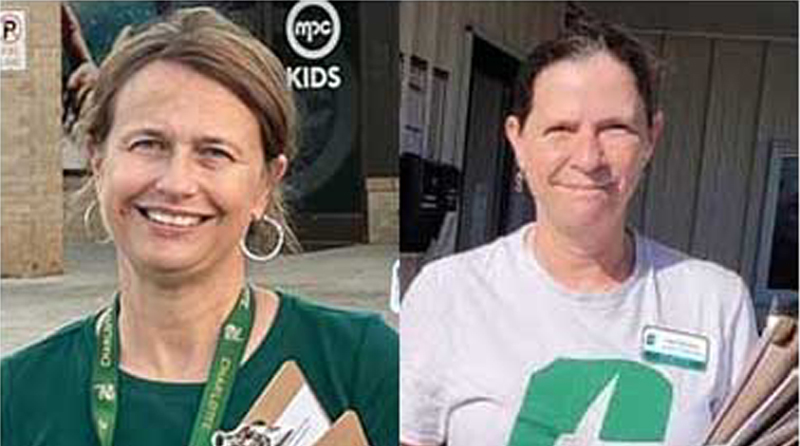Charlotte Researchers Gather Data To Study Effects Of Hurricane Helene
UNC Charlotte researchers are collecting data throughout Western North Carolina to learn how the effects of Hurricane Helene, which devastated the region in late September, impacted residents’ ability to vote — and their confidence in the election — during North Carolina’s early voting period and on Election Day, Tuesday, Nov. 5.
The sheer enormity of damage to the region prompted Martha Kropf and Regina Branton, professors in the Department of Political Science and Public Administration, to assemble a team to conduct exit polling when early voting began on Oct. 17. Their aim has been to learn about the voters’ levels of property damage from the hurricane, the difficulty they faced in traveling to and finding their polling place as well as their sense of assuredness about the election itself.
The team’s research is made possible by a “quick response” grant from the UNC Charlotte Division of Research. Quick response/rapid research is a formal type of research often used to move people into place immediately following a natural disaster so researchers can begin gathering “perishable” data — or data that otherwise would be lost over time.
“The University supports this team’s unique opportunity to do meaningful work in Western North Carolina,” said Deb Thomas, associate vice chancellor for research. “Their results will offer insight, perspective and solutions in regard to a unique societal challenge and inform future disaster preparedness and response strategies.”
Branton and Kropf have also applied for a RAPID Grant from the National Science Foundation to further support their work. The UNC Charlotte seed grant enabled them to acquire needed supplies and mobilize quickly. They expect to share results in spring 2025.
“The grant from the Division of Research allowed us to begin collecting data in the field quickly, and we’ll be able to continue to do so beyond Election Day as we interview election administrators,” said Kropf. “Without this support, the work would not be possible.”
The team includes researchers from several universities from North Carolina and other states: Erik Herron, West Virginia University; Herschel Thomas, University of Texas at Austin; and Daniel Sledge, University of Oklahoma. They are joined by student researchers from Appalachian State University, UNC Asheville and Western Carolina University.

